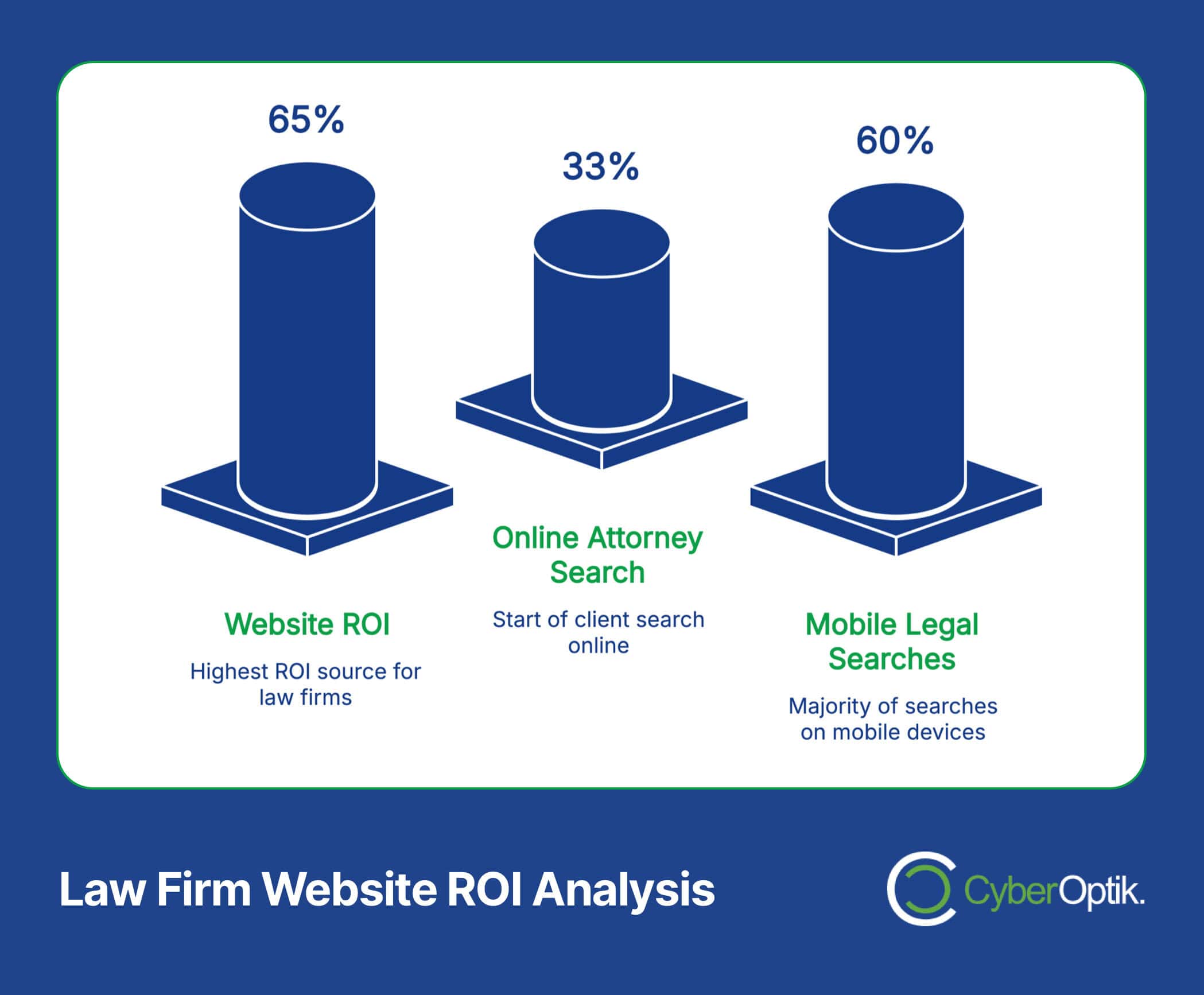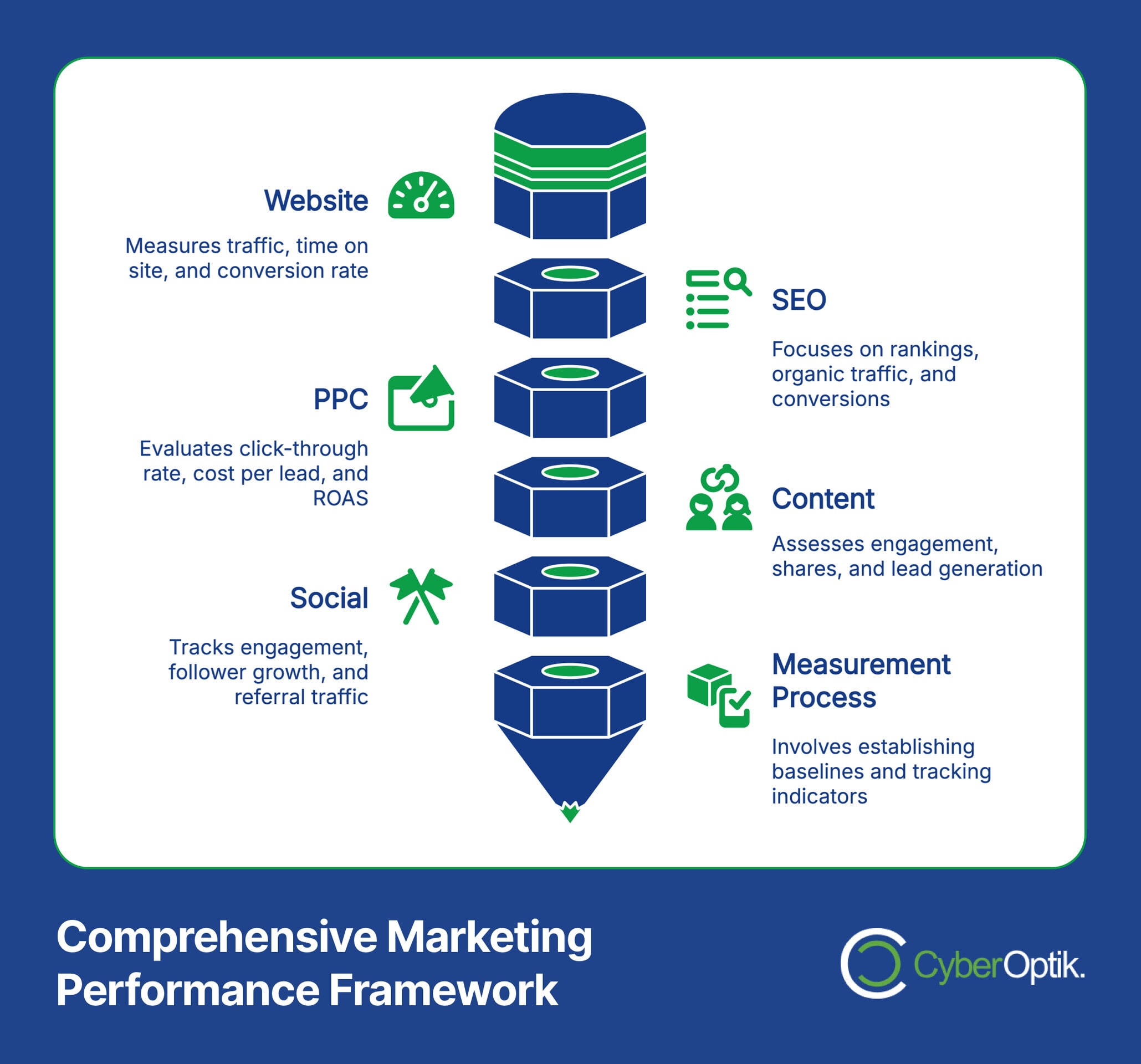The legal landscape grows more competitive each year. Law firms face unique challenges when marketing their services to potential clients. These challenges require strategic approaches specific to the legal industry.
In this comprehensive guide, we’ll explore the most effective marketing strategies for law firms. We’ll focus on digital approaches that deliver measurable results. Each strategy includes actionable steps you can implement right away.
Whether you’re a small practice or a large firm, these marketing approaches can help you attract better clients. Let’s discover how to make your firm stand out in a crowded market.
The Current State of Law Firm Marketing

Law firm marketing has evolved dramatically in recent years. Traditional methods like referrals remain important. However, digital channels now dominate the legal marketing landscape.
The data confirms this shift toward digital marketing. A staggering 65% of law firms spend most of their marketing budget online. (Source: Clio)
This budget allocation reflects where potential clients search for legal services. Today, 33% of potential clients start their attorney search online, making digital visibility essential. (Source: Clio)
The most successful firms embrace multiple marketing channels. They create integrated strategies that combine online and offline approaches. Let’s explore which specific strategies deliver the best results.
Website Optimization: Your Law Firm’s Digital Front Door
Your website creates the first impression for many potential clients. It must project professionalism while making it easy to contact your firm. An optimized website forms the foundation of all your digital marketing efforts.
The impact of quality website design can’t be overstated. Research shows that 65% of law firms report their website generates the highest ROI among all marketing channels. (Source: Comrade Web)
Mobile optimization has become especially critical for law firms. Studies reveal that 60% of legal searches now occur on mobile devices, making responsive design essential. (Source: Comrade Web)
Beyond basic design, your firm’s website should focus on conversion optimization. This means creating clear paths to contact forms, phone numbers, and consultation requests.
| Website Element | Purpose | Best Practice | Impact on Conversions |
|---|---|---|---|
| Attorney Profiles | Build credibility | Include photos, credentials, experience, and practice areas | High |
| Practice Area Pages | Target specific legal needs | Detailed information with client-focused language | Very High |
| Contact Forms | Generate leads | Short forms with privacy assurances | Critical |
| Client Testimonials | Build trust | Specific, results-focused testimonials | High |
| Mobile Optimization | Serve mobile users | Responsive design with touch-friendly elements | Very High |
Many law firms overlook the importance of website speed. Fast-loading pages improve both user experience and search rankings. Investing in speed optimization pays dividends through higher conversion rates and better search visibility.
For the best results, evaluate your best law firm websites against competitors. Look for opportunities to create a more effective digital front door for potential clients.
Search Engine Optimization for Law Firms
SEO represents one of the highest-ROI marketing activities for law firms. It drives qualified traffic to your website through organic (non-paid) search results. Effective SEO can provide a sustainable competitive advantage.
The ROI numbers for legal SEO are impressive. Law firms see a 526% return on SEO investment over three years, making it a highly cost-effective strategy. (Source: On The Map)
Most legal professionals recognize this value. A survey found that 79% of legal professionals rank SEO as the most effective marketing channel, ahead of all other approaches. (Source: On The Map)
Implementing effective SEO requires expertise. This explains why 56% of firms outsource SEO to specialized agencies with legal industry experience. (Source: On The Map)
| SEO Component | Focus Areas for Law Firms | Implementation Difficulty | ROI Potential |
|---|---|---|---|
| Local SEO | Google Business Profile, local citations, review management | Medium | Very High |
| On-Page SEO | Practice area optimization, keyword integration, content structure | Medium-High | High |
| Technical SEO | Site speed, mobile-friendliness, schema markup | High | Medium-High |
| Link Building | Legal directories, legal publications, community partnerships | High | Very High |
The investment required for quality SEO services reflects its complexity. Average annual SEO costs for law firms are around $120,000, with the investment scaling based on firm size and competitive landscape. (Source: SEO Profy)
When evaluating SEO partners, beware of what SEO myths should law firms avoid. Many providers make unrealistic promises about rankings without understanding the nuances of legal marketing.
For firms in competitive markets, local SEO often provides the fastest path to results. Focusing on your specific service areas can yield higher-quality leads at a lower cost than competing nationally.
Content Marketing Strategies That Work for Attorneys
Content marketing establishes your firm’s expertise and provides valuable information to potential clients. When done correctly, it attracts qualified traffic while building credibility with both search engines and prospects.
The value of content marketing is clear. Law firms that blog regularly receive 97% more website links than those without blogs, dramatically improving their search visibility. (Source: Grow Law Firm)
Legal marketers recognize this impact. Research shows that 81% of law firms prioritize content marketing as their top investment area, ahead of other digital channels. (Source: Grow Law Firm)
The most effective legal content addresses specific questions and concerns potential clients have. This educational approach positions your firm as a trusted advisor rather than simply a service provider.
| Content Type | Best Uses for Law Firms | SEO Impact | Lead Generation Value |
|---|---|---|---|
| Practice Area Pages | Core service descriptions and client benefits | Very High | High |
| FAQ Content | Addressing common client questions | High | Medium-High |
| Case Studies | Demonstrating successful outcomes | Medium | Very High |
| Blog Articles | Legal news, explanations, and guidance | High | Medium |
| Video Content | Attorney introductions, concept explanations | Medium-High | High |
Successful content marketing requires consistency and quality. Create a content calendar that addresses seasonal legal concerns and frequently asked questions. Focus on creating in-depth resources that genuinely help potential clients understand their legal situation.
When developing content, consider both search engines and human readers. Content should be technically optimized while remaining accessible to non-lawyers. Avoid excessive legal jargon that might intimidate potential clients.

Social Media Marketing for Legal Practices
Social media provides law firms with platforms to humanize their brand and engage with potential clients. While not all platforms are equally effective for legal marketing, strategic social media can build visibility and trust.
Many lawyers find social media valuable for lead generation. Studies show that 71% of lawyers generate new leads via social media platforms, making it an essential channel. (Source: SEO Profy)
LinkedIn stands out as particularly effective for legal marketing. According to research, 77% of law firms favor LinkedIn for their marketing efforts over other social platforms. (Source: SEO Profy)
Most attorneys now recognize social media’s importance. Industry surveys reveal that 85% of attorneys include social media in their marketing strategies, reflecting its mainstream adoption. (Source: SEO Profy)
| Social Platform | Best Uses for Law Firms | Content Types | Audience Demographics |
|---|---|---|---|
| B2B relationships, thought leadership | Articles, professional updates, firm news | Business professionals, corporate clients | |
| Community engagement, personal injury cases | Community events, client testimonials, Q&As | General public, diverse age groups | |
| Legal news commentary, networking | News updates, quick tips, industry comments | Journalists, professionals, engaged citizens | |
| YouTube | Educational content, firm introductions | Explainer videos, attorney profiles, webinars | Research-oriented prospects, visual learners |
Content strategy varies by platform. LinkedIn demands professional, value-focused content that demonstrates expertise. Facebook performs better with community engagement and human interest stories. Each platform requires its own approach.
For smaller firms with limited resources, it’s better to excel on one platform than to spread efforts thinly across many. Start with LinkedIn for most practice areas, especially B2B-oriented firms. Consumer law practices may find more value on Facebook.
Building an engaged social following requires authentic engagement. Respond to comments, participate in relevant groups, and share valuable insights rather than purely promotional content.
Pay-Per-Click Advertising for Law Firms
PPC advertising offers immediate visibility for law firms. Unlike SEO, which builds gradually, PPC can generate leads the moment campaigns launch. This makes it valuable for new firms or those entering competitive markets.
The returns can be substantial when managed correctly. Data shows that Google Ads yield an average 4:1 return on ad spend (ROAS) for law firms, making it a financially viable strategy. (Source: Grow Law Firm)
Legal keywords rank among the most expensive in Google Ads. Terms like “personal injury lawyer” or “divorce attorney” can cost $50-$300 per click in competitive markets. This high cost makes campaign optimization critical.
Remarketing represents an important component of PPC strategy. Research indicates that 49% of law firms focus on remarketing campaigns to capture previously interested visitors. (Source: On The Map)
Successful PPC campaigns for law firms require specialized expertise. Legal advertising faces strict regulations that vary by jurisdiction. Ad copy must be carefully crafted to avoid ethical issues while remaining effective.
When setting up PPC campaigns, create tightly focused ad groups around specific practice areas. This improves quality scores and lowers costs. Use dedicated landing pages with clear calls to action rather than sending traffic to your homepage.
Consider creating effective Google Ads for professional services that emphasize your unique strengths. Focus on what differentiates your firm from competitors rather than generic claims about experience or aggressive representation.
Client Retention Marketing for Law Firms
Acquiring new clients costs significantly more than retaining existing ones. Smart law firms invest in client retention strategies that encourage repeat business and referrals. These efforts typically yield high ROI.
Effective communication forms the cornerstone of retention. Research shows that 72% of law firms send client email alerts to maintain engagement and provide valuable updates. (Source: On The Map)
Gathering and implementing feedback also plays a crucial role. Data indicates that 65% of firms track client feedback to improve services and address concerns before they lead to client departures. (Source: Berbay)
Technology can significantly enhance retention efforts. Firms using CRM systems report 35% higher revenue from repeat clients than those without such systems. (Source: Berbay)
| Retention Strategy | Implementation Approach | Client Value | Business Impact |
|---|---|---|---|
| Regular Communication | Newsletters, case updates, relevant legal alerts | Medium-High | High |
| Client Feedback Systems | Surveys, review requests, follow-up calls | Medium | Very High |
| Client Education | Webinars, guides, process explanations | High | Medium-High |
| Client Portals | Secure document sharing, case tracking | Very High | High |
| Relationship Building | Personal outreach, milestone recognition | High | Very High |
Many firms use call recordings to improve client communication. Statistics show that 55% of firms use call recordings to refine messaging and identify training opportunities for staff. (Source: Comrade Web)
Client education represents another effective retention strategy. Informed clients tend to have more realistic expectations and higher satisfaction. Regular educational content demonstrates your ongoing value beyond immediate legal needs.
The importance of positive reviews for credibility extends to retention as well. Asking satisfied clients for reviews not only helps acquire new clients but also reinforces their positive perception of your firm.
Balancing Traditional and Digital Marketing
While digital marketing dominates modern law firm strategies, traditional methods still play important roles. The most effective approach combines both channels in an integrated strategy that leverages each method’s strengths.
Direct mail remains surprisingly effective. Research shows that direct mail postcards have a 5.7% response rate for law firms, significantly higher than many digital channels. (Source: Grow Law Firm)
Many consumers actually prefer physical mail for some communications. Studies indicate that 73% of consumers prefer physical mail for brand communication, making it relevant for certain practice areas. (Source: Grow Law Firm)
Referrals continue to be the most trusted source of new business. Data confirms that 92% of clients trust referrals from friends and family over advertisements, highlighting the value of word-of-mouth marketing. (Source: Grow Law Firm)
The most successful approach integrates traditional and digital channels. For example, in-person networking events can be promoted via social media. Direct mail campaigns can direct recipients to specific landing pages. This integration multiplies the effectiveness of each individual channel.
Measuring Marketing Success for Law Firms
Effective marketing requires ongoing measurement and optimization. Law firms should track key metrics to evaluate performance and make data-driven adjustments. Without proper measurement, marketing becomes guesswork.
Start by establishing baseline metrics before launching new initiatives. This provides a clear point of comparison to measure improvement. Track both leading indicators (website traffic, engagement) and lagging indicators (consultations, new clients).
Digital marketing offers superior measurability compared to traditional methods. One key benefit is reduced client acquisition costs. Research shows that digital marketing reduces client acquisition costs by 62% compared to traditional methods. (Source: Grow Law Firm)
| Marketing Channel | Key Performance Metrics | Measurement Tools | Optimization Methods |
|---|---|---|---|
| Website | Traffic, time on site, conversion rate | Google Analytics, heatmaps | A/B testing, UX improvements |
| SEO | Rankings, organic traffic, conversions | SEO tools, Analytics | Content updates, technical fixes |
| PPC | Click-through rate, cost per lead, ROAS | Google Ads, Analytics | Keyword refinement, ad copy testing |
| Content Marketing | Engagement, shares, lead generation | Analytics, social tools | Topic refinement, format optimization |
| Social Media | Engagement, follower growth, referral traffic | Platform analytics, UTM tracking | Content calendar adjustments, audience targeting |
Beyond digital metrics, track the full client journey from first contact to retention and referrals. This holistic view helps identify bottlenecks in your business development process that might not be visible from marketing metrics alone.
Create a regular reporting schedule to review performance. Monthly reviews work well for most metrics, with quarterly deep dives to assess overall strategy. This consistent evaluation allows for timely adjustments to underperforming channels.
Creating an Effective Law Firm Marketing Plan
A structured marketing plan provides direction and accountability for your firm’s marketing efforts. Without a plan, activities often become reactive rather than strategic. An effective plan aligns marketing with your firm’s growth objectives.
Start by defining clear, measurable goals. These might include increasing leads by a specific percentage, entering a new practice area, or improving client retention rates. Each goal should have associated metrics and timelines.
Budget allocation requires careful consideration. Data indicates that 45% of law firms allocate marketing funds to SEO, reflecting its high ROI potential. (Source: SEO Profy)
Different types of firms may require different allocation models. For example, solo practitioners often dedicate 75% of their marketing budgets to social media advertising due to its targeted approach and lower entry costs. (Source: SEO Profy)
The decision between handling marketing in-house versus outsourcing depends on your firm’s size and expertise. Most firms benefit from a hybrid approach – managing some elements internally while partnering with specialists for technical aspects like SEO and PPC.
Implement successful law firm website strategies as the foundation of your marketing plan. Your website serves as the hub for all other marketing efforts, making its effectiveness crucial to overall success.
Finally, ensure your marketing plan includes regular review and adjustment processes. The digital landscape changes rapidly, requiring flexibility and ongoing optimization. Quarterly reviews allow for strategic shifts while maintaining overall direction.
Implementing Your Law Firm Marketing Strategy
Effective marketing for law firms requires a balanced approach across multiple channels. The strategies outlined in this guide provide a framework for attracting and retaining high-value clients for your practice.
Begin by evaluating your current marketing efforts against these best practices. Identify gaps in your strategy and prioritize improvements based on potential ROI. Start with your website as the foundation, then expand to other channels.
Remember that consistency matters more than perfection. A sustainable, ongoing approach will outperform sporadic marketing efforts, regardless of budget. Create systems and processes that ensure marketing remains a priority even during busy periods.
Need help implementing these strategies for your law firm? Our team specializes in digital marketing for legal professionals. Contact us today for a free website and marketing assessment to identify your biggest opportunities for growth.
Ready to Transform Your Law Firm’s Marketing?
Contact our team today for a free digital marketing assessment for your law practice. We’ll identify your biggest opportunities and provide actionable recommendations.




